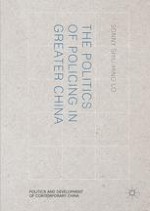2016 | OriginalPaper | Buchkapitel
4. Knowledge Transfer from Hong Kong Police to Mainland Chinese Police
verfasst von : Sonny Shiu-Hing Lo
Erschienen in: The Politics of Policing in Greater China
Verlag: Palgrave Macmillan US
Aktivieren Sie unsere intelligente Suche, um passende Fachinhalte oder Patente zu finden.
Wählen Sie Textabschnitte aus um mit Künstlicher Intelligenz passenden Patente zu finden. powered by
Markieren Sie Textabschnitte, um KI-gestützt weitere passende Inhalte zu finden. powered by
